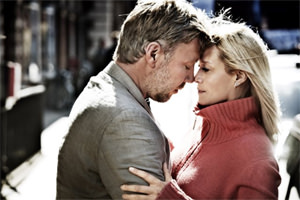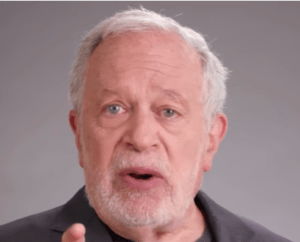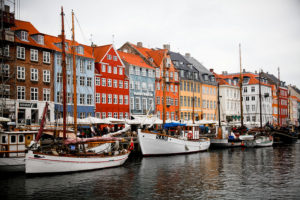‘In a Better World’: Oscar Bait Without Much Bite
Despite landing the Oscar for best foreign film, not to mention some good acting, "In a Better World" aims for the heart -- and misses.
Being high-minded does not get you much in this world—except a bad case of cynicism as your idealism eventually shatters on the rocks of reality. There is, however, one exception to this rule, which manifests itself almost annually at the Academy Awards, where films that demonstrate the triumph of our better natures over human nature’s multiple perversities often win a prize that is roughly equivalent to a good-conduct medal in the military. That was the case this year with Danish director Susanne Bier’s “In a Better World,” which was awarded the Oscar for best foreign film.
Now going into general release, it is a movie that tracks, on two levels, the efforts of decent, if occasionally misled, people to behave on a morally edifying level, despite melodramatic challenges to their righteousness. On level one, we have a borderless doctor named Anton (Mikael Persbrandt) trying to save lives (or at least minimize pain) in a refugee camp in a nameless African country. Conditions there are brutal and dangerous, especially as they involve a particularly nasty criminal gang that constantly harass Anton and his staff as they go about their good works.
Back home in Denmark (where Anton seems to spend more time than he does in the bush) things are not much better. He and his wife are contemplating divorce, and their elder son, the 10-year-old Elias (Markus Rygaard), is constantly being bullied at school—until, that is, a new boy named Christian (William Jøhnk Nielsen) arrives to defend and bond with him. Christian is one tough nut, and angry with his father, whom he believes (erroneously) was insufficiently loving when the boy’s mother was dying of cancer. Before long, the boys are seeking revenge against a garage owner with whom Anton gets into an argument (you can perhaps imagine how well Anton’s policy of Gandhian nonresistance to this brute works out). The kids get to making pipe bombs in furtherance of their vendetta, which imperils Elias’ life. But also—ah, the shock of real consequences—it leads to reconciliations all around.
Obviously, we are meant to savor the parallels between the larger unpleasantnesses of Third World violence and the smaller, more domesticated fracas proceeding in sunny Denmark. But that remains more of a minor irony than a forceful drama. There’s a disconnect between these twinned narratives that is not compensated for by the film’s earnest tone or its generally excellent performances. As often happens in movies of this kind, good intentions are smothered by a refusal to recognize that there is a difference in scale between the iniquities the film so soberly contemplates.
We want to care—about the bloody mess in Africa and the bravery of the people trying so hard to alleviate it, about the kids back home attempting to achieve some sort of mature moral balance in a world they cannot fully understand. But despite its several outbursts of violent behavior, “In a Better World” is a dryly schematic movie, the kind of picture that is born to win awards that people feel better about themselves for handing out, but not one that makes you feel particularly engaged as you endure it in a theater.
Your support matters…Independent journalism is under threat and overshadowed by heavily funded mainstream media.
You can help level the playing field. Become a member.
Your tax-deductible contribution keeps us digging beneath the headlines to give you thought-provoking, investigative reporting and analysis that unearths what's really happening- without compromise.
Give today to support our courageous, independent journalists.






You need to be a supporter to comment.
There are currently no responses to this article.
Be the first to respond.